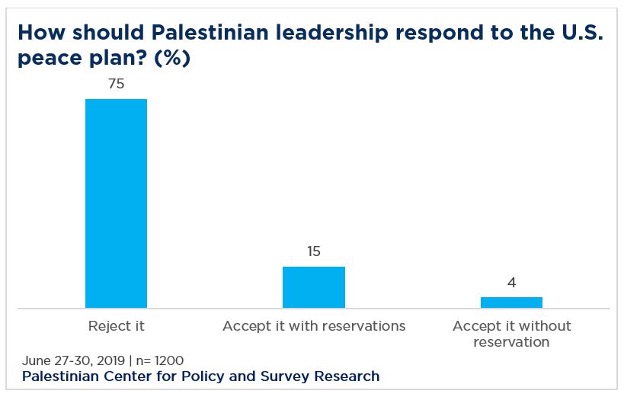Peace to Prosperity Misses the Mark with Palestinians

Palestinians are critical of the US and Peace to Prosperity plan.
Relations between the United States and Palestine have been fraught since President Trump’s December 2017decision to recognize Jerusalem as the capital of Israel. Further decisions by the Trump administration—including significant cuts in aid to Palestinians and the March 2019 recognition of Israeli sovereignty over the Golan Heights—have caused the relationship to deteriorate even further. Palestinian leaders have been outspoken in their criticism of what they see as pro-Israel bias.
At the June 25-26 Bahrain Peace to Prosperity Workshop, Jared Kushner presented the first component of a U.S. peace plan for the Middle East and emphasized the U.S. commitment to the Palestinian people. The stated goal of the Peace to Prosperity plan is “to empower the Palestinian people to build a better future for themselves and their children.” But how does this plan sit with the Palestinian public?
A June 27-30 poll conducted by the Palestinian Center for Policy and Survey Research found that Palestinians are largely critical of the U.S. and Peace to Prosperity. Of the 1200 individuals surveyed in Gaza and the West Bank, a large majority (90%) do not trust the U.S. administration. Eight in ten (79%) support the Palestinian Authority’s boycott of the Bahrain workshop. Moreover, 75 percent believe that the PA should reject the U.S. plan; only 4 percent support accepting the plan without reservation.

Though a plurality (32%) of Palestinians say that poverty and unemployment are the most serious problems confronting Palestinian society today, they are unwilling to accept Peace to Prosperity. Perhaps this lack of support is linked with the plan’s focus on an economic solution before a political one (at least for the time being), which does not align with Palestinian priorities. Given the choice between economic prosperity and independence, 83 percent of Palestinians select independence. Three in four (73%) believe that economic prosperity cannot be achieved under occupation and the restrictions it imposes. Crucially, most Palestinians (85%) do not believe that a U.S. peace plan would bring an end to the Israeli occupation of the West Bank.
As Chicago Council Senior Fellow Dina Smeltz wrote earlier this year, President Trump’s peace plan will face significant challenges both domestically and abroad. Strong and unreserved opposition in the Palestinian public should be counted among them.